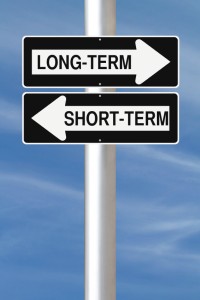David Kingman ponders whether the new government that will emerge after the next general election – whatever its composition – will have enough of a mandate to take the really big decisions on important intergenerational issues
As Big Ben struck to announce the beginning of 2015, it also unofficially marked the start of the race to win power in the next general election. Unusually, the current government was formed on the understanding that it would definitely serve a full parliamentary term lasting five years: this meant that, ever since the beginning of the current parliament, everyone has known in advance that the next general election would take place on 7 May 2015.
For all those involved in politics, this date now looms ominously near. What makes the 2015 general election especially interesting is that British politics seems to be changing in radical and unprecedented ways. After years of the Conservatives and Labour enjoying a duopoly of power, the rise of a clutch of smaller parties means that more coalitions and increasing political fragmentation seems inevitable in the future.
Given the range of challenges which Britain faces, will this deliver governments that are capable of thinking long-term and taking bold decisions on controversial issues? For the sake of the younger and future generations, we had all better hope that it can.
Daunting challenges
Whoever holds power after the next general election, like all governments, is going to be confronted by a daunting range of challenges – not least adjusting to the ageing population, managing the national debt, addressing the NHS funding crisis and updating Britain’s electricity supply – which are highly intergenerational because their repercussions will be felt for decades to come.
What makes the outcome of the next election so important is that it could produce a fragmented coalition government with only a small majority, which may be too focussed on surviving from day-to-day to spend political capital worrying about these big, long-term decisions.
Democratic governments often struggle to be decisive about really controversial issues because it inevitably involves upsetting people whose votes they would like to win. Of course, such is the nature of democracy. However, having a more fragmented politics arguably makes dealing with contentious issues more difficult because there are more parties who need to be involved around the discussion table in order to pass legislation, and more supporters who need to be appeased.
Who will hold power after the next election?
Some commentators are already claiming that the 2015 general election could one of the hardest to predict in British history.
The latest polling figures collated by the BBC suggest that the Conservatives and Labour are neck-and-neck on 35% each, with the Lib Dems on 9%, UKIP on 12% and everyone else sharing the remaining 9% between them.
Ultimately, this means nothing in the winner-take-all contests for individual seats which take place under a first-past-the-post electoral system, where winning majorities in a few seats is more important than gathering handfuls of supporters who are spread too thinly to make a difference.
The best example of this is the Scottish National Party, which can only claim a small share of the overall vote in nationwide polls, but at local races in Scotland, some commentators have suggested, it could win the vast majority of Scotland’s 59 Westminster seats and may even become the third-largest party within the next parliament, which would make them an important player in any post-election coalition negotiations.
Some might argue that this bold new age of British politics is refreshing, as for the first time many voters are experiencing genuine multi-party democracy, where they can choose between a wide variety of different parties that reflect their concerns instead of effectively being forced to pick between the Conservatives and Labour.
Some other European countries, most notably Germany, manage to regularly produce workable coalition governments, although Italy is the most notorious example of one where years of fragmented governance seem to have produced institutional sclerosis which has left them unable to address big, long-term problems successfully.
Although the UK’s current coalition government has managed to enact major reforms to pensions and government spending, it must partly owe its stability to the fact that the Conservatives had a large electoral mandate and they only needed to establish common ground with one other party in order to build a workable coalition.
There are two ways in which the outcome of the next generation could produce especially risk-averse politicians. First, an unusually large share of MPs will probably only have a very narrow mandate, having won tight two- or three-horse races in order to get their seat in the first place, and many of them could be constantly looking over their shoulders in case the next government collapses suddenly, prompting a snap electoral battle.
Second, in contrast to the relative stability of the Con-Lib Dem two-party coalition, the next coalition may contain several parties reflecting a wide range of views which would each be capable of propping-up or bringing down a government. Arguably, this could be a recipe for political deadlock if survival becomes the day-to-day priority of whoever holds power, making it even harder to address long-term challenges.
Elections are always uncertain. Yet British politics seems to be entering its most uncertain period in many years just when there are lots of long-term challenges facing the country which demand decisive leadership.
